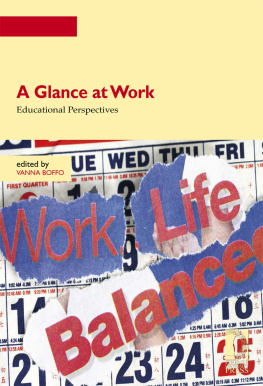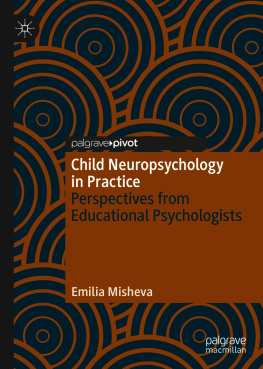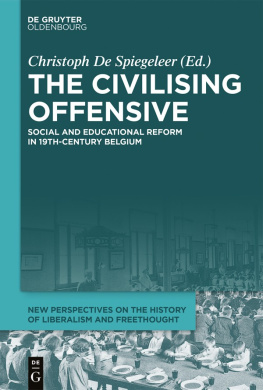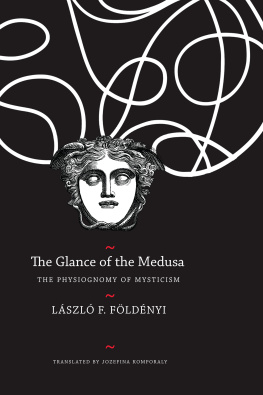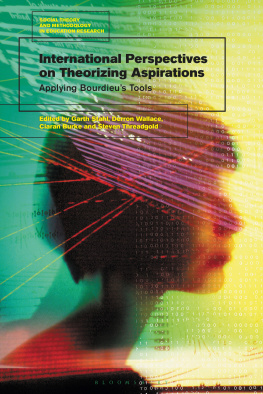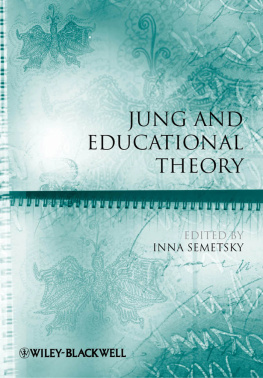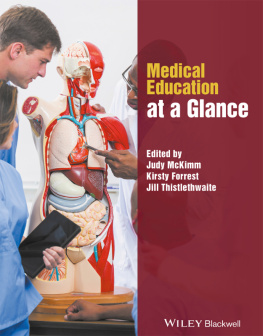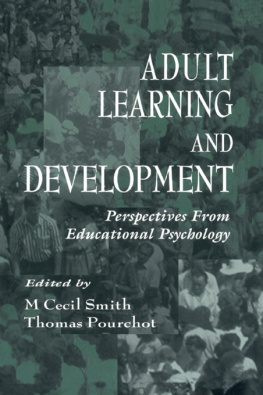STRUMENTI
PER LA DIDATTICA E LA RICERCA
A Glance at Work
Educational Perspectives
edited by
Vanna Boffo
Firenze University Press
2012
A Glance at Work . Educational Perspectives / edited by Vanna Boffo. Firenze : Firenze
University Press, 2012.
(Strumenti per la didattica e la ricerca ; 129)
http://digital.casalini.it/9788866551874
ISBN 978-88-6655-187-4 (online PDF)
ISBN 978-88-6655-188-1 (online EPUB)
ISBN 978-88-6655-321-2 (print)
Progetto grafico di Alberto Pizarro Fernndez
Immagine di copertina: Ragsac19 | Dreamstime.com
Translated by Karen Whittle
Ultimate responsibility for the revision of the chapters lies with the authors themselves.
This publication has been financed by Florence University Department of Education Sciences and Cultural and Training Processes 60% research funds.
***
Peer Review Process
All publications are submitted to an external refereeing process under the responsibility of the FUP Editorial Board and the Scientific Committees of the individual series. The works published in the FUP catalogue are evaluated and approved by the Editorial Board of the publishing house. For a more detailed description of the refereeing process we refer to the official documents published on the website and in the online catalogue of the FUP (http://www.fupress.com).
Firenze University Press Editorial Board
G. Nigro (Co-ordinator), M.T. Bartoli, M. Boddi, F. Cambi, R. Casalbuoni, C. Ciappei, R. Del Punta, A. Dolfi, V. Fargion, S. Ferrone, M. Garzaniti, P. Guarnieri, G. Mari, M. Marini, M. Verga, A. Zorzi.
2012 Firenze University Press
Universit degli Studi di Firenze
Firenze University Press
Borgo Albizi, 28, 50122 Firenze, Italy
http://www.fupress.com/
Printed in Italy
Table of Contents
Introduction. Educational Glances at Work
Vanna Boffo
No man is an iland, intire of it selfe;
every man is a peece of the Continent, a part of the maine;
[] and therefore never send to know for whom the bell tolls;
it tolls for thee.
John Donne, Meditation 17
A Glance at Work. Educational Perspectives is a volume written by a group of authors. It is not just a collection of essays drawn up by some of the scholars Pietro Causarano, Clara Silva, Giovanna Del Gobbo, Emiliano Macinai, Stefano Oliviero and Maria Rita Mancaniello who took part in the Seminari sul lavoro (Seminars on Work) project. Instead, what I am introducing here is the expression of an unusual research path, which has been groundbreaking in its development. First of all, the topic can be said to be groundbreaking in that it is a route little trodden in present-day pedagogical publications. Our intention was to deal with work from the multiple viewpoints that we express as researchers in the pedagogical sphere: we started from the assumption that to deal with education and formation we must not leave out work a central aspect in the lives of each one of us from our fields of interest. Second to that was the method adopted, transversal and critico-interpretative in style, tackling a common path through the range of research methods distinguishing our various fields of professional study.
Therefore, on one hand, the essays collected here revolve around a topic that is borderline to the pedagogical sphere; and on the other hand, the manner in which this topic has been explored has seen the trans-disciplinary involvement of researchers who, while belonging to various scientific and pedagogical sectors, differ owing to their subjects of interest and methodological approaches. We considered the contamination between topics and methods to be an interesting and distinctive route to follow in order to investigate a topic work which, from the perspective of the human person, is experiencing a moment of immense unease, owing to the variability in contract types and the multiple attacks on the dignity of material living conditions. It is an unease that does not just concern the political and economic structures that have enabled this change to happen, namely a return to the past with regard to the job conditions of millions of workers, it concerns the human condition and its formation in the present day.
Through meetings and the shared research path, we were able to hold a series of seminars in the spring of 2011, from March to May, at the Faculty of Education Sciences at the University of Florence. The series consisted of six meetings, with an audience that was varied but mainly comprised students from the Faculty, focussing on the relationship between work and the various subjects usually dealt with in the researchers fields of pedagogical study: children, adolescents, migrants, the disabled, adults and the family. Thanks to the series of seminars, the faculty and its students were able to follow the research as it developed, beginning from a simple, but evident question concerning the substantial absence of educational/formative debate on work as a human activity, as an educational emergency, as a cultural production process, and as a means for forming the person.
Therefore, we teamed up around the necessity to perform an educational task: to weave back together the multiple threads of a topic which could help us, in a pedagogical key, to decipher the sense of work in the formative processes of the subjects, individuals and human people whose paths of learning and schooling, educational relationships and formative dimensions, inside both formal and non-formal institutions, concern us by way of tradition and profession. This research process found expression, first of all, through the seminars, during which dialogue and conversation provided the means to open ourselves up to epistemological and didactical comparison.
In this sense, the volume that I am editing is the product of a common path, with shared methodological choices, whose investigation was extended thanks to listening to what the others had to say during the seminars and meetings. Each one of us was free to probe our own research sphere and to do so with the most suitable instruments available. However, we tried to follow the line of reflection given by the open and free, and once again transversal, use of the objects chosen for our single analyses.
Pedagogy, a science among the sciences of education, as such studies the formative process that involves all human beings during their existence, starting from when they assume a mental or physical form for the whole of their lifespan. Moreover, in Italy, over the last twenty years pedagogical studies on the category of formation have highlighted how the formative process can be included in the interpretation of the galaxy of education in which every man, but also every environment or institution, finds its own forms of subsistence. Indeed, as the Greek paideia had already clearly highlighted, education is the category that permits every man to deal with his own human condition. Societies and communities are constituted through and with education; the processes that permit the production and reproduction of cultures and vital living habits are educational processes. Inculturation, education, learning and human formation are educational processes that guarantee mans survival in the forms of different life civilisations. As a discipline that deals with the education and formation of man, pedagogy has a particular gaze on the processes of teaching and learning, from that which takes place beginning in the first months of life to that which is structured in formal, non-formal and informal educational institutions. This is the theoretical context in which each of the authors of the essays carried out his or her research activity, an activity that then takes different directions: history of pedagogy, philosophy of education, social pedagogy, child pedagogy, intercultural pedagogy, special pedagogy, teaching new technologies, and marginality and deviance pedagogy. The researchers have dealt with educational processes, but, above all, with the subjects that interpret and live these processes in their daily existence.

